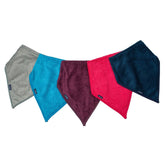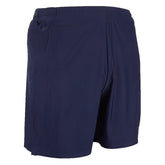Trending Now
Popular Products
Classic Kerchief in Bamboo Towelling
- £11.99
- £11.99
- (-0%)
- Unit price
- / per
-
Teal
-
Burgundy
-
Grey
-
Navy
- Berry
Kes-Vir Men's Swim Wrap Shorts
- £76.99
- £76.99
- (-0%)
- Unit price
- / per
Two Tone Sequin Weighted Lap Pillow
- from £35.99 (£43.19 inc VAT)
- from £35.99 (£43.19 inc VAT)
- (-0%)
- Unit price
- / per
-
Navy
-
Black
-
Pink
Need Help?
Email Us
Navigating Auditory Sensory Needs: Practical Advice
Many children and young people are sensitive to sound (e.g. hand dryers, alarms, crowded rooms) or seek strong sound input. With a predictable plan, simple tools and a few environmental tweaks, days can be calmer and more manageable.
Safety note: If you have concerns about hearing or ear health, speak to your clinician or audiology service. Avoid wearing ear defenders all day; long-term overuse can increase sound sensitivity. Follow manufacturer guidance for age and safe use of earplugs/earmuffs.
Who this can help
- Children and young people who find everyday sounds overwhelming (e.g. toilets, canteens, assemblies, shops)
- Those who startle easily at sudden noises or struggle to filter background sound
- Individuals who seek sound for regulation (humming, tapping, vocalising)
- Parents, carers, schools and clinics planning practical, respectful support
Quick wins
- Plan for hotspots: list noisy places (hand dryers, fire alarms, traffic) and agree what to do (defenders on, step out, count down).
- Pre-warn where possible: give a short cue before loud tasks (“Dryer in 10 seconds”).
- Carry a small “sound kit”: ear defenders/earplugs, quiet fidget, short visual card.
- Use calm language: simple, consistent phrases (“It’s loud. Ears on.”).
- One change at a time: small, repeated practice works best.
Environment & setup
- Choose quieter routes/times for shops, corridors and arrival/departure where possible.
- At home or class, soften echo (curtains, rugs), and seat away from doors/vents.
- Offer a clear “quiet corner” with low visual clutter for short resets.
- Use visual schedules so unexpected noise doesn’t derail the whole routine.
Practical strategies
1) Reduce & predict noise
- Agree signals for putting on ear protection before known noises.
- Try short “listen–pause–breathe” moments to build tolerance to low background sound if appropriate.
2) Regulate the body to help the ears
- Offer deep-pressure or “heavy work” earlier in the day (push, pull, carry safely) to reduce overall arousal.
- Use short movement breaks between noisy activities.
3) Give the hands a job
- Quiet, repetitive fidgets (roll, squeeze, zip) during waits, assemblies or travel.
- For sound-seekers, channel to acceptable options (humming with timer, musical app via headphones at set times).
Products that can help
Start with these ranges, then pick items that fit age, setting and budget.
-
Ear protection – targeted use around known noisy moments (not all day)
- Hilka Ear Defenders — adjustable, foldable ear defenders for everyday noisy environments.
- Hilka Junior Ear Defenders — child-sized option with a snug, comfortable fit.
- Flare Audio Calmer Kids Earplugs — in-ear alternatives that reduce harsh sound peaks while keeping awareness.
- Quiet fidgets – hand-busy tools for regulation during waits and transitions
- Calming sensory aids – lap pads, body socks and low-arousal tools for overall regulation
- Weighted products – for short, supervised use to support calm before/after noisy times
- Low-arousal lighting – reduce visual load in quiet corners
Tips for success
- Practise “ears on/off” at home so the routine is familiar before you need it in public.
- Keep defenders/earplugs clean and labelled; replace if worn or ill-fitting.
- Teach a brief script for help (“Too loud” + hand signal) to reduce distress.
- Build in something positive after tough sound moments (five quiet breaths, favourite activity).
Troubleshooting
- Refuses ear protection: try a different style/size; introduce during a preferred activity first; use a mirror for control.
- Still distressed with defenders on: step out to a quieter area; combine with deep-pressure or movement; shorten exposure.
- Increasing sensitivity over time: review duration of use; aim for targeted use and gradual re-entry to safe, low-level sound.
Funding & budgets
- Potential funding options for families
- Digital catalogues to compare options by category
Need advice?
Email enquiries@fledglings.org.uk with age, settings (home/school/community) and your main noise challenges. We’ll suggest options that fit your budget. We accept Purchase Orders. UK delivery from £4.99.
Support our work
Donate to Fledglings to help us keep advice free and prices fair.
Related
Last reviewed: 12 September 2025
- Choosing a selection results in a full page refresh.







